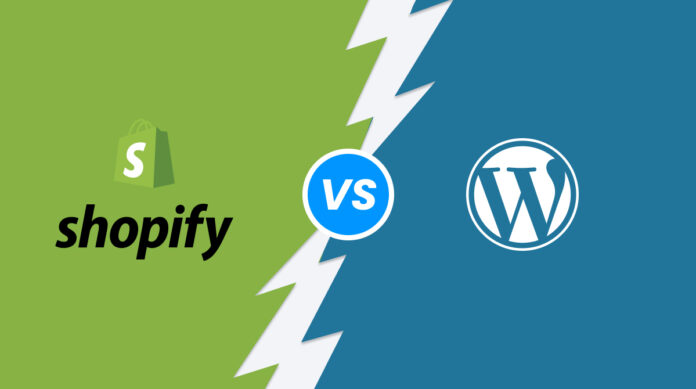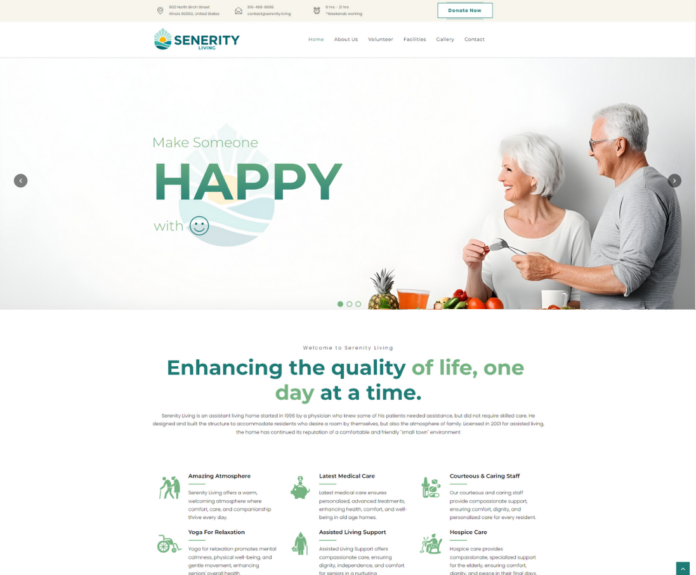Choosing the right platform to build your online store or website is a critical decision. Two of the most popular options are Shopify and WordPress. While both platforms have a significant presence in the online business world, they cater to different needs and offer distinct features. In this blog, we will explore the key differences between Shopify and WordPress to help you make an informed decision for your business.
What is Shopify?
Shopify is a fully-hosted eCommerce platform designed specifically for building online stores. It is an all-in-one solution that handles everything from website design and hosting to payment processing and inventory management. Shopify is known for its user-friendly interface, making it easy for beginners and experienced users alike to launch and run an online store.
What is WordPress?
WordPress is an open-source content management system (CMS) that powers over 40% of all websites on the internet. It is incredibly flexible and can be used to create anything from blogs to eCommerce sites. WordPress itself is free, but to create an online store, you would need to integrate plugins such as WooCommerce, which transforms your site into a fully functional eCommerce platform. WordPress offers complete control and customisation options, making it ideal for those who want to tailor their website to specific needs.
Key Differences Between Shopify and WordPress
1. Ease of Use
- Shopify: Shopify is designed to be easy to use, even for those without any technical knowledge. Its drag-and-drop interface and intuitive dashboard make it simple to set up and manage an online store. Shopify also takes care of hosting, security, and updates, allowing you to focus solely on your business.
- WordPress: WordPress offers more flexibility, but with that flexibility comes complexity. While you have full control over your website, setting it up requires a bit more technical know-how, especially if you’re integrating WooCommerce for eCommerce functionality. You also need to manage your own hosting, security, and updates, although there are many plugins and services available to simplify these tasks.
Verdict: If you’re looking for a quick and easy setup with minimal technical requirements, Shopify is the better choice. WordPress, however, offers more control if you’re willing to put in the extra effort.
2. eCommerce Features
- Shopify: Shopify is built specifically for eCommerce, so it comes with all the essential tools you need out of the box. These include inventory management, shipping options, payment gateways, and abandoned cart recovery. Additionally, Shopify supports a wide range of third-party apps to extend your store’s functionality.
- WordPress (WooCommerce): WordPress requires the installation of WooCommerce or another eCommerce plugin to enable online selling. While WooCommerce is powerful and highly customizable, it doesn’t come with as many features pre-built as Shopify. However, WooCommerce offers extensive flexibility, allowing you to choose your own payment gateways, shipping providers, and more.
Verdict: Shopify wins in terms of convenience and built-in features, but WordPress (with WooCommerce) offers greater flexibility if you need a more customized eCommerce experience.
3. Customisation and Flexibility
- Shopify: Shopify offers a range of themes that can be customised using its drag-and-drop builder. While you can customise the design of your store, the options are somewhat limited unless you’re familiar with coding. Shopify does allow advanced customisation using its own templating language, Liquid, but this still doesn’t offer the same level of flexibility as WordPress.
- WordPress: WordPress is known for its unparalleled flexibility and customisation options. With thousands of themes and plugins available, you can create virtually any type of website, and you have full control over the design and functionality. WordPress allows you to modify the code directly, providing ultimate flexibility for developers and users who want a highly customised website.
Verdict: If you need extensive customisation and flexibility, WordPress is the better option. Shopify offers customisation but is more restricted in comparison.
4. Cost
- Shopify: Shopify operates on a subscription-based model with different pricing plans ranging from basic to advanced. These plans cover hosting, SSL certificates, and access to eCommerce features. However, there are transaction fees unless you use Shopify’s own payment gateway. Additionally, premium themes and apps can increase the overall cost.
- WordPress: WordPress is free to use, but you will need to pay for hosting, which can vary depending on the provider. WooCommerce, the most popular eCommerce plugin for WordPress, is also free, but premium themes, plugins, and certain features may come at an additional cost. However, WordPress does not charge transaction fees, which can be an advantage for businesses handling a large volume of transactions.
Verdict: WordPress can be more cost-effective if you are willing to manage your own hosting and maintenance, while Shopify’s pricing is predictable but potentially higher in the long run due to transaction fees.
5. SEO and Content Marketing
- Shopify: Shopify offers basic SEO features, including the ability to edit meta tags, create a blog, and customise URLs. However, Shopify’s content management features are not as robust as WordPress. While you can still rank well on search engines using Shopify, you may find it harder to manage extensive content marketing efforts compared to WordPress.
- WordPress: WordPress is widely regarded as the best platform for SEO and content marketing. With powerful SEO plugins like Yoast SEO, you can easily optimise your site for search engines. WordPress’s blogging capabilities are superior, offering more flexibility and control over content creation and organisation.
Verdict: WordPress is the better choice if SEO and content marketing are a major focus for your website.
6. Support
- Shopify: Shopify provides 24/7 customer support through live chat, phone, and email. Additionally, Shopify has a comprehensive help centre and community forums to assist users.
- WordPress: WordPress does not offer direct support, as it is an open-source platform. However, there is a vast community of users, forums, and tutorials available online. Most hosting providers also offer support, and many premium themes and plugins come with their own customer support options.
Verdict: Shopify offers more direct support, while WordPress relies on community and hosting provider support.
Conclusion
Choosing between Shopify and WordPress depends on your business needs, technical expertise, and long-term goals.
- Shopify is ideal for users who want a hassle-free, all-in-one eCommerce platform with built-in features and dedicated support.
- WordPress (with WooCommerce) is better suited for those who need greater customisation, flexibility, and control, especially if you’re focused on SEO and content marketing.
If you’re a beginner looking to launch an online store quickly, Shopify may be the best option. However, if you want full control over your website and are prepared to handle some technical aspects, WordPress is a more versatile choice.
4o






